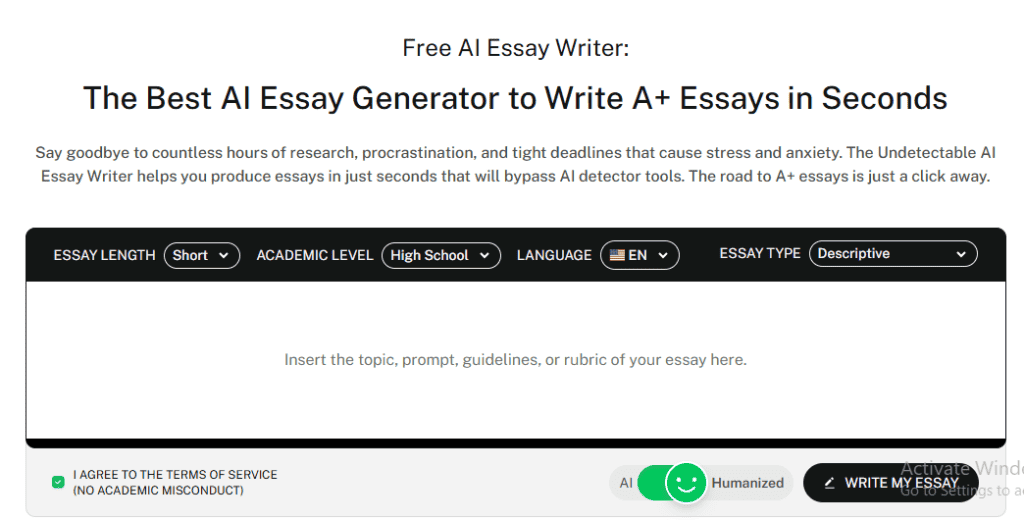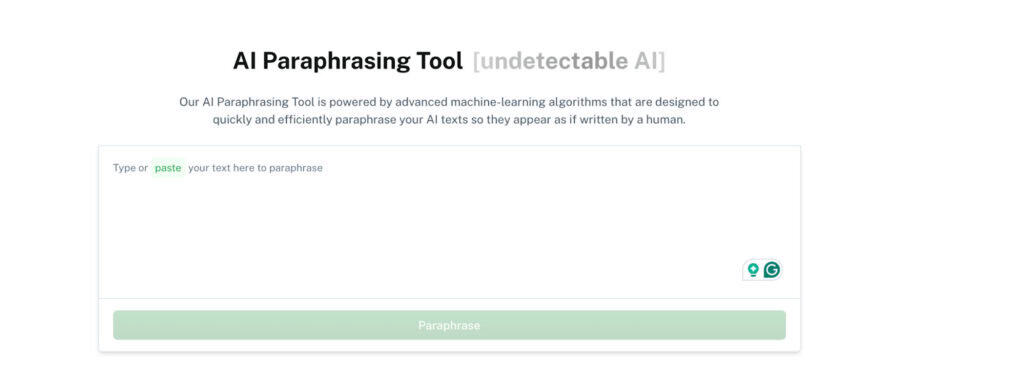When we talk about how people come across, we’re not always talking about what they say.
Sometimes, it’s about the raised eyebrow, the slightly-too-long pause, the tone that says “I’m silently judging you but also trying to be polite.” That, dear reader, is demeanor.
It’s the sum of all the little cues you give off, whether you mean to or not. And yes, people are definitely picking up on it.
In this article, we’ll define demeanor in great detail.
I’ll show you how to use it in a sentence without sounding like you read too many thesauruses, common types of demeanor you’ve definitely seen (and maybe embodied on a bad day), plus how it differs from personality.
Let’s start with the basics: What is demeanor?

What Is Demeanor?
Demeanor (pronounced dih-MEE-ner, IPA: /dɪˈmiːnər/) is a noun that refers to a person’s outward behavior and appearance.
It encompasses your conduct, facial expressions, posture, tone of voice, and basically the whole package of how you act and look on the outside.
The Oxford English Dictionary defines demeanor as:


Never Worry About AI Detecting Your Texts Again. Undetectable AI Can Help You:
- Make your AI assisted writing appear human-like.
- Bypass all major AI detection tools with just one click.
- Use AI safely and confidently in school and work.
“the way that someone looks or behaves”
You have a friendly demeanor if you’re smiling, making eye contact, and not acting like a robot.
But if you always cross your arms, give one-word answers, or basically scream “leave me alone” without saying it, you might need to work on your demeanor.
Science backs this up, too. Research confirms humans judge each other in milliseconds, and your demeanor is front and center in that snap decision.
In professional contexts, a calm, confident demeanor inspires trust, while a disengaged or irritable one can undermine credibility.
But did you know, the word demeanor comes from Latin minari, which means “to threaten.” Yeah, originally it was about herders yelling at cattle.
By the time it reached Anglo-French, it evolved into demener (“to conduct”), and in Middle English, it took the form “demenen,” meaning “to conduct oneself.”
This historical shift explains why demean once meant “to behave in a particular way,” though today its more common usage “to insult” overshadows the original.
Oh, and spelling nerds, take note: it’s demeanor in the U.S., but demeanour if you’re anywhere else.
Demeanor in a Sentence
Want to learn how to use “demeanor” in a sentence like a pro?
Here’s how “demeanor” gets used in real life in serious settings and your group chat.
“Stephen Curry’s calm demeanor transforms into a scoring machine as he rewrites Davidson history with mind-blowing performances and skyrocketing net worth”
-NBA News

“Barron Trump’s cool demeanor has everyone saying the same thing”
-MSN
And here’s how you’d use the word in everyday talk:
- Texting a friend: “Bro, your date’s demeanor was so intense—like a detective interrogating a suspect over appetizers.”
- Describing a coworker: “Jen’s always smiling, but her email demeanor is straight-up ‘I will end you.’”
- Talking about a teacher: “Mr. Thompson has that ‘I will not hesitate to assign homework’ demeanor, but he’s secretly a softie.”
- After a job interview: “The interviewer had such a chill demeanor, I almost forgot I was begging for a paycheck.”
- Watching sports: “Love how the goalie’s demeanor is just ‘I see no ball, only vibes.’”
Synonyms for Demeanor
There can be occasions or settings where using the word demeanor might not accurately convey your point.
The level of understanding of who you’re talking to can also be a factor here.
They could be coming from a culture where they use some other demeanor synonym.
So, here’s your cheat sheet for demeanor synonyms for situations like those:
1. Vibe (Casual, but gets the job done)
- Meaning: The general energy or impression someone gives off.
- Example: “Dude, his vibe was so intense—like a librarian who moonlights as a spy.”
2. Bearing (Fancy, but useful for posture + attitude)
- Meaning: How someone carries themselves physically and socially.
- Example: “The soldier’s bearing was so rigid, you could’ve used him as a doorframe.”
3. Air (Mysterious, but not in a creepy way)
- Meaning: The subtle mood or atmosphere someone projects.
- Example: “He had this ‘I just solved world hunger in my head’ air about him.”
4. Manner (Polite, but not boring)
- Meaning: The way someone behaves in specific situations.
- Example: “Her manner at the funeral was flawless—until she accidentally snorted during the eulogy.”
5. Deportment (Extra formal, use sparingly)
- Meaning: Behavior, especially in terms of etiquette or discipline.
- Example: “The principal praised the student’s deportment.”
6. Disposition (For when you’re describing someone’s default mood)
- Meaning: A person’s natural attitude or temperament.
- Example: “His cheerful disposition makes even Mondays feel like a three-day weekend.”
7. Presence (For when someone owns the room)
- Meaning: The commanding effect of someone’s personality or appearance.
- Example: “Beyoncé’s presence is so strong, she could make a grocery list sound like a royal decree.”
8. Attitude (For when someone’s being… extra)
- Meaning: A settled way of thinking/behaving, often with sass.
- Example: “Her ‘try me’ attitude made the DMV clerk rethink his life choices.”
9. Comportment (The SAT word you’ll use exactly once)
- Meaning: Behavior in a formal setting (yes, it’s just conduct with a monocle).
- Example: “His comportment at the gala was impeccable—until he mistook the caviar for jellybeans.”
10. Aura (Mystical, magnetic, or just weirdly intense)
- Meaning: An invisible but palpable energy surrounding someone
- Example: “Her aura is pure chaos, but the fun kind where you end up at a diner at 2am with glitter on your face.”
Common Types of Demeanor
By now, you know the demeanor meaning in essence is your whole unspoken resume.
It can be good, bad, friendly, repulsive, etc.
Let’s go over some positive and negative types of demeanor.
| Positive Types of Demeanor | |||
| Type | What It Looks Like | Why It Works | Real-Life Example |
| Calm | Unshakable, steady breathing in chaos | Projects control (“I got this”) | A doctor explaining surgery like it’s a grocery list |
| Polite | “Please,” “Thank you,” actual eye contact | Makes people feel respected | Barista who remembers your order after one visit |
| Humble | No humblebrags, just quiet confidence | Disarms egos, builds trust | CEO who credits their team in every interview |
| Approachable | Open posture, easy smiles | Invites conversation | Teacher whose students actually ask for help |
| Enthusiastic | Energy of a golden retriever with good news | Contagious motivation | Colleague who makes spreadsheets seem exciting |
| Negative Types of Demeanor | |||
| Type | What It Looks Like | Why It Works | Real-Life Example |
| Cold | Resting face | Makes you seem hostile | Boss who replies to emails with “K.” |
| Offensive | “Just joking!” (They’re not) | Creates tension | Uncle at Thanksgiving who “asks questions” |
| Arrogant | Talks like they’re dictating a memoir | Instant resentment | Guy who name-drops in every sentence |
| Nervous | Fidgeting, shaky voice | Undermines credibility | Intern presenting with the energy of a trapped moth |
| Aggressive | Invades space, loud opinions | Shuts down collaboration | Coworker who turns coffee chats into debates |
Demeanor vs. Personality
Demeanor and personality are related, sure, but they’re not interchangeable.
Demeanor is the outward expression someone gives off in a specific moment. It’s how they act, carry themselves, or respond in a situation.
Personality, on the other hand, is the deeper system. It’s the collection of traits that shape how a person thinks, feels, and acts long-term.
Someone’s posture, tone of voice, facial expressions, and the general energy they bring into a room—that’s all part of their demeanor.
You can clock someone’s demeanor in five seconds flat. Calm, tense, awkward, charming, whatever. But that doesn’t mean you’ve understood their personality.
Personality takes longer to uncover. It’s stable, more ingrained, and made up of traits like introversion, curiosity, optimism, neuroticism, and so on.
Demeanor can sometimes be a reflection of personality, but it can also be completely misleading.
Someone can have a chill demeanor because they’ve learned to mask their anxiety. Or someone might come off as intense when they’re actually just passionate and, let’s be honest, probably a bit sleep-deprived.
So if you’re judging a person solely by their demeanor, you might be getting a heavily edited trailer, not the full movie.
Think of it this way: Your demeanor is how you act when the teacher walks in (suddenly upright, pencil in hand).
Your personality is whether you’re the class clown or the silent observer 90% of the time. One’s situational, the other’s baked in. Got it? Good.
How AI Tools Can Help You
Now, there could be multiple situations or settings where you want to use the word demenor appropriately, but couldn’t because while you understand its meaning, you still can’t use it confidently in your writing.
Lucky for you, there are a couple of AI tools that can help you master this word both in your speech and writing.
- AI Essay Writer: Want your essay to use the word “demenor” or any other word in a specific way? Our AI Essay Writer takes your instructions and spits out polished, human-sounding essays close to the picture in your mind.

- AI Paraphrasing tool: Want to change the demeanor of a text? Yes, demeanor isn’t limited to humans. A text can have a formal or informal demeanor. Whatever it is, toss it in our AI Paraphrasing tool, and get back something that actually sounds like you said it, whether that’s casual, professional, or a third something.

- AI Chat: Blanking on synonyms, examples, or how to rephrase that awkward sentence? Ask our AI Chatbot like you’re texting a friend, and get a response to any question or a fleeting thought.

Discover how our AI Detector and Humanizer can help—find them in the widget below!
FAQs About Demeanor
Is demeanor always about appearance?
No. Demeanor is about both appearance and behavior, like posture, tone, and facial expressions.
Is demeanor positive or negative?
Neither. If anything, it’s neutral. Demeanor inherently has no negative or positive connotation. It’s neutral.
Your demeanor can come off as positive (friendly) or negative (cold) depending on how you project it.
Is it used more in writing or speaking?
The word demeanor is used in both writing and speaking.
However, it’s more common in writing (essays, descriptions) than in casual speech.
Final Thoughts
So there you have it. Demeanor is your weapon for first impressions, job interviews, and not accidentally scaring people off with your “thinking face.”
Now that you get the demeanor definition, you can tweak yours like a social engineering pro.
Need help on how to socially engineer your demeanor?
Try Undetectable AI’s AI Chatbot now, and it’ll train you from the bottom up.
